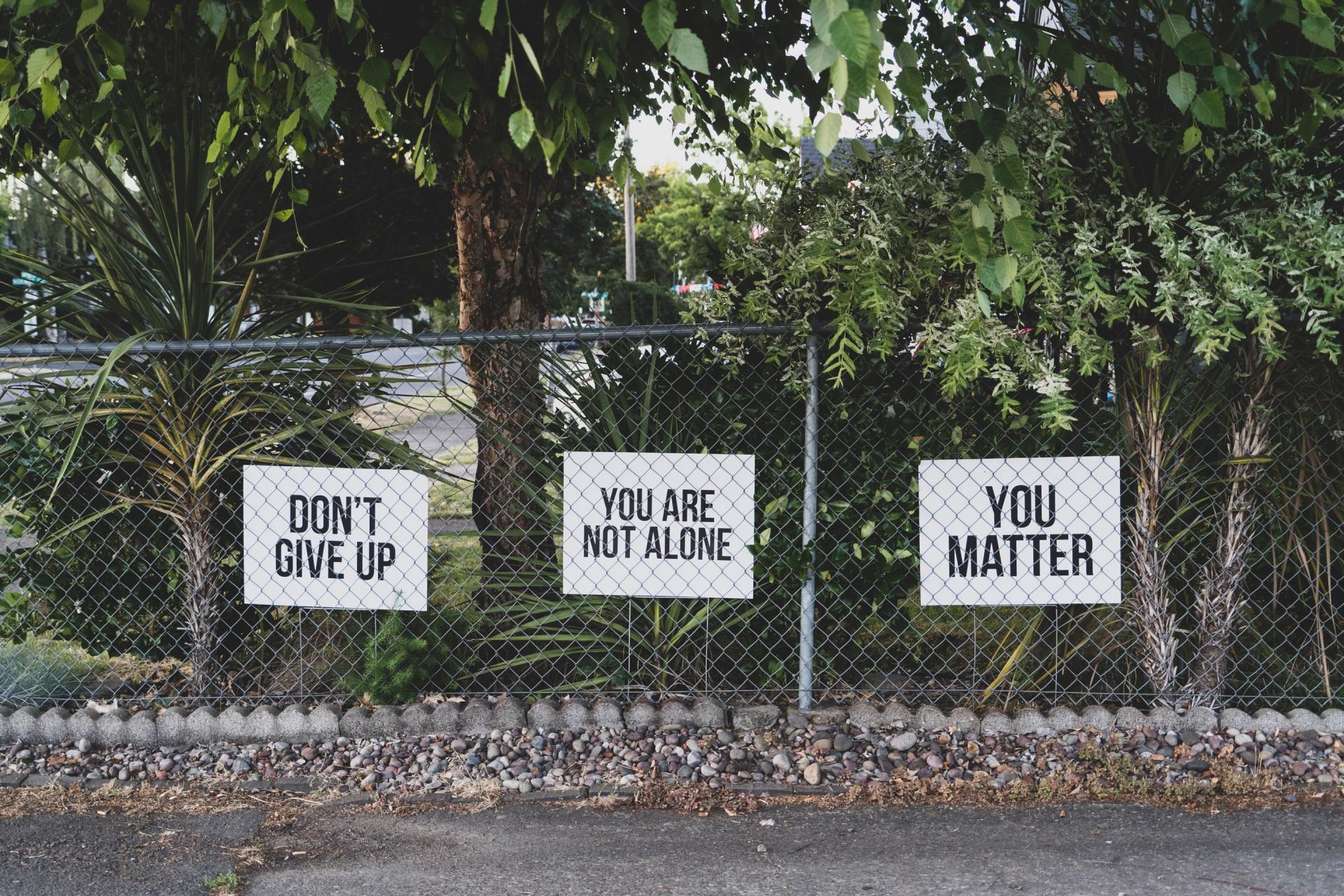Choosing the next two years of your life - A-Level Choices...
Lara • 23 August 2020
AH so the time has come to choose what A-Levels to do you say? Let us help you.
One of our beloved tutors Lara is here to give you some useful advice on tackling that big ole' choice of what subjects to do in the next stage of education. Beware! This blog post will leave you better than you began!
What subjects should I choose for my GSCEs, A Levels and beyond?
Narrowing down the subjects you study as you reach higher levels of education can be daunting, especially when you’re unsure of what to choose. Often, there can be pressure from parents, schools and your potential future career. After GSCEs, students might move from ten subjects to three, or even less if they choose to study a BTEC. The key things to consider is what you like, what you can achieve in, and what can help you later on.
The best place to start if you are overwhelmed is the basics. What are you good at and what do you enjoy? Often, these go hand in hand: it’s hard to put lots of effort into a subject you hate! Be honest with yourself about whether you believe you can handle the larger amount of work. The more passionate you are, the easier it will be to study and achieve great results.
Another thing to bear in mind is how your choices will affect your future education. For example, if you are aiming for a particular University or degree, check if they require or do not accept any specific A levels. However if you have no idea what you want to do when you turn 18, don’t panic! Choose broader and well-known subjects that are less specialised which are more likely to be accepted anywhere, such as Maths or English, to keep your options open. Which? University reported in 2016 that 28% of students regretted their A Level choices as they impacted their degree options. Using their online A Level tool is a great place to start to see where different combinations can take you. Similarly, when choosing your degree, research what job opportunities it will open up for you after graduation.
Students often have other influences such as families or schools pushing them to choose certain subjects or qualifications. Remember, you are the only person who will be actually studying these courses, so your opinion is the only one that really matters here. Other people and generations probably have had very different experiences to you. Certain subjects may also be looked down on, or have a reputation for being easier than others. However, society needs students to study a wide range of subjects; if everyone did a medicine degree, there would be no artists, writers, historians or economists. Personally, I was told an A Level or degree in science was more useful than Film Studies, but as someone hoping one day to work in the media, this isn’t actually great advice!
Finally, remember that whatever you choose won’t be the only subjects you study or work in for the rest of your life. If you start a course and realise you are unhappy, don’t be afraid to change even if it means adjusting your goals. Above all, make sure you put in the time to research, while also trusting your instincts about what subjects you believe really excite you.

Is there a perfect way to learn? Classrooms today are riddled with unhealthy competition, intimidating expectations and excessive testing. This is all in consequence of ridged, linear curriculums that are forced upon young people with an extensive variety of needs, strengths and abilities. It does not work. We are not robots. As of now, with the education system the way it is, we have only one choice but to change the way we approach learning. Perhaps, we can accept that if we don’t get an A or a Pass, this does not mean we are ‘dumb’, it is just a result of natural, nonconformity. Each individual brain is quirky. We are admired for it as children. Studying English Language and Linguistics at university, many research papers on ‘child language acquisition’ conclude that the optimal age to learn something is as children – the younger the better. This is possibly due to our brain being more ‘elastic’ growing up. Or, are we able to bring some ‘childlike’ habits into the way we approach learning at school as young adults? For example: 1) Ask ‘stupid/obvious’ questions - Question EVERYTHING. Children have a much smaller fear of judgement. Ignorance IS bliss, it leads to a life of wonder, one where you’re constantly learning. 2) Distraction is okay - Self-discipline is important, however procrastination and leaving a task unfinished can lead to It lingering in the back of your brain for longer. Children always have wondering minds in which they may recall an idea that was present a few weeks ago. 3) Apply things to real life - Adults learn in a very static environment. Reading and writing notes will only stick temporarily in your brain. Children, however, gain most information in play situations in which their kinaesthetic system is active. Applying this logic, try considering how classroom ideas apply in your on the go, day to day life. Ultimately, this is just food for thought on the way we approach how we learn. There is no right/wrong way. Exploit your brains oddities to conclude what helps you retain the most information. Make learning and education an exciting part of your life and not your whole life – approach it with youthful enthusiasm and the grades will come second.

Our beloved Aneesa is here to give you a mental health checkpoint. Do listen to our girl, she knows what she's talking about. A mental health checkpoint. No matter where you are and what you’re studying, STOP. How is your mental health doing? Have you checked in on yourself lately? I know that those classes can drag on sometimes and it might be hard to get up in the morning for school but with a little self-care, you can change up those weary days. Whether you are a student at school reading this or a parent, these tips should help you make a start in taking care of yourselves. Here are some of my best tips: 1. Get that body moving You don’t have to be a sporty person, but a little something to regularly get that heart pumping, or even a stretch on your most sluggish days is key. Try yoga or a morning stretch, or boxing if you prefer something more active. You might want to step outside of your comfort zone and join a school sports team. This is also a great way to make friends! The more active you are, the better sleep you’ll have, and as the saying goes, ‘early to bed, early to rise, makes a person healthy wealthy and wise.’ 2. Put down the screen This is a tough one I know, you intend to check one message, and next thing you know you’re sucked in, hours passed scrolling through your phone. Take some time out and try to find another activity to put your mind to. This could be reading, playing music, painting or a personal passion project; change it up and find what you love. Dedicate just ten minutes a day to your ‘Me time’ and let your mind have a break from the screens and school and you’ll instantly feel more relaxed. 3. Write your heart out One of my best tips is to start a journal. Before you roll your eyes, hear me out. Your journal is you. There are no rules. Write about the good moments and the bad, write your feelings, goals and passions. Write one thing you are grateful for every day. You could even just write about your day. If you don’t know where to start, I suggest you put a timer for five minutes first thing in the morning or just before bed and write whatever comes to your mind. This is your personal space and it will help you check in with yourself and clear your mind. Everyone goes through school; GCSE’s and A-levels / College are just another part of life which will go so fast you won’t even remember your stress in the years to come. But your mind and body are for life so give them some love! Most importantly, reach out for help and talk to someone, this could be your parents, friends or school. You are never alone!

Hello and welcome to UNITE's blog! Here is a space where our tutors and mentors will write about various things to do with education, whether it be self-care tips during exam season to study tips to keep you engaged. Here at UNTIE our priority is and always will be the students. Our purpose is to re-start (or continue) the passion towards education that we all embody in our students. This blog is also open to the public, if you are a student and would like to be part of the blog email fleur@westfam.co.uk with an article proposal and a text insert of the article containing 200 words. It is a great opportunity to get your journalistic abilities steady as well as a chance to be featured on our website! For the moment, this blog with remain about all things to do with education with hopes to stem into current issues that has a current influence on education. Further, any new and exciting developments at UNITE will be posted here on our beloved blog to make sure you are all informed and ready! I hope you are all thriving and well, Fleur x
